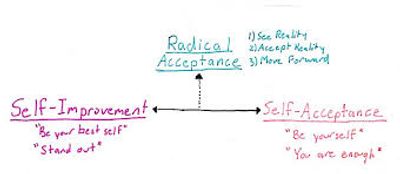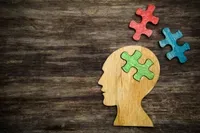THE HEALING POWER OF VALIDATION
.jpeg)
By Michael Upston
In the words of the pop musician Elvis Costello, "What's so funny ‘bout peace, love and understanding?" This may sound like youthful idealism, but it also contains within it some very practical concepts that we can use to heal our relationships within our communities, our families and ourselves.
We live in a culture that teaches us to be very binary in our perception of the world. We are taught to view things in terms of right or wrong, good or bad, true or false, success or failure, liberal or conservative, etc. As a former colleague of mine once said, “we live in a carnival of judgments." When there are disagreements, we tend to think in terms of one perspective being right and the other perspective being wrong. This far too often leads to an "us against them" mentality. We feel compelled to teach others why we are right and they are wrong. This was illustrated wonderfully in a cartoon I once saw. A man was sitting at the computer while his wife was telling him it was time to come to bed. He said to her, "hold on honey, somebody is wrong on the internet."
There is value in this approach. I am glad my science teacher taught me many years ago that the earth is not flat and really does rotate around the sun. However this perspective also has limitations, especially when applied to our relationships with other people and ourselves.
We live our lives in the context of a network of relationships, and only in that context can true meaning, purpose and fulfillment be found. Our identity, our place in the world, can only be discovered and realized in terms of our interconnectedness with others. When these connections are severed, it can lead to a fragmentation that produces hostility, anxiety, loneliness, alienation, emptiness and ultimately despair. As the poet John Donne reminds us, “No man is an island.”
Validation provides us with a way to repair these divisions. Like a fly stuck in a bottle, sometimes we need to change our perspective to see the way out. We need to cultivate an understanding of where the other person is coming from, and why they believe and feel what they do. It is recognizing that within every position there something that is valid; there is at least a kernel of truth. Even when a person is engaging in clearly self-defeating or destructive behaviors, there is an internal logic underneath these actions that makes perfect sense given the person's experience, feelings, and understanding of events. This is why we often end up getting stuck in arguments and disagreements, because we know that at some level we are right, and saying something that is real and important. However, in order for us to move the situation forward, we need to become aware that there is also truth and validity in other perspectives.
The first step then in overcoming conflict and division in our relationships is to identify what is valid, what is true, in both our and the other person's position. Once the validity of both perspectives is recognized, we can create a deeper connection by bringing these two truths together and seeing where that leads. This process offers us the opportunity to repair divisions, and move relationships forward in a meaningful and constructive way. It offers us the opportunity to be understood and to be understanding. In the words of the poet Mary Oliver, it offers us the opportunity to "find our place in the family of things."
I hope this has been a helpful overview of the healing power of validation. In my next blog, I will discuss specific validation techniques. Stay tuned!!
More Blog Posts

RADICAL ACCEPTANCE

Keeping The Coronavirus in Mind
.webp)
Positive Clinical Psychology - Part II

You can experience life again. Let’s take steps together.
At Bio Behavioral Institute, we’re here to be your team and get you back to the life you deserve. Schedule your consultation and take the first step towards a more meaningful life.
Call our office at 516-487-7116 or complete the form to schedule your consultation.
